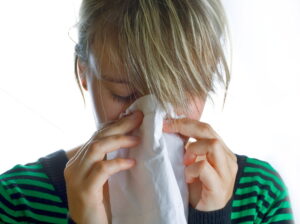You’re interested in enjoying better air quality in your house, but you aren’t certain that scheduling air purifier services in Covington, GA will make a difference. What if the purifier doesn’t really do much, or you get the wrong type of air purifier?
We’ll address your questions about the efficacy of air purifiers in this post, as well as give you some information about how to make the best use of an indoor air quality (IAQ) system.
The First Line of Defense: Air Filters
Before we start talking about air purifiers, we need to start by talking about air filters. If you don’t already have an air filtration system in your house, then it’s too early to leap to air purifiers. (No, the filter that comes with your HVAC system doesn’t count as an air filtration system.) Air filters are the first line of defense against larger contaminants such as dust, dander, and lint. Air purifiers don’t have much effect on these contaminants, while air purifiers can handle them easily.
You will need the help of HVAC professionals to install an air filtration system into your existing ducts. The professionals will also help you get the right strength of filter—you don’t want it to be too weak or too strong.
The Power Duo: Filters and Air Purifiers
Now, we come to the star of the show: the air purifier. The filter traps the large particles, and the air purifier targets the smaller pollutants that will slip through the filter. Air purifiers are powered devices that use a range of different technologies to remove pollutants without trapping them in media. These include ionization and ultraviolet lights. They can eliminate a wide range of different pollutant types.
Filters and air purifiers work as a complement to each other. Air filters catch the larger particles, leaving the purifiers a finer, cleaner air to purify. Purifiers in turn cause particles to lump together through ionization, making it easier for filters to catch them.
What Air Purifiers Target
Air purifiers, depending on their type, can remove many kinds of unwanted airborne contaminants: pollen, mold spores, volatile organic compounds, odor molecules, dust mites, bacteria, viruses, and more. Purifying the air of these pollutants will significantly improve the quality of the air. This has an especially large impact on people who suffer from respiratory issues and/or allergies.
More advanced air purifiers have sensors that detect when specific pollutants are in the air. They then adjust how they operate to better target these pollutants.
The Difference Air Purifiers Make in Your Home
Yes, air purifiers can make a difference for your home: fewer harmful pollutants, cleaner air, and an even better functioning air filtration system. Even for healthy people, cleaner air helps with increased productivity and better sleep.
It’s important that you have the right professionals to help you with your indoor air quality installations. You can rely on our team to find the best combination of air filters and air purifiers to ensure the healthiest possible air quality for you and your family.


